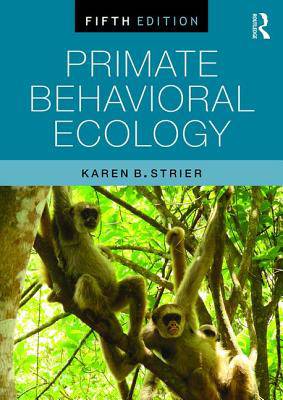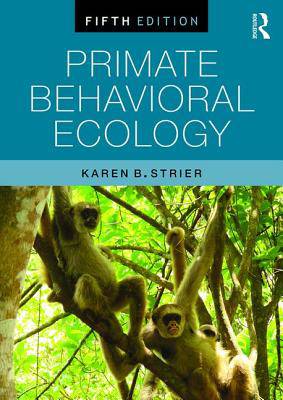
- Afhalen na 1 uur in een winkel met voorraad
- Gratis thuislevering in België vanaf € 30
- Ruim aanbod met 7 miljoen producten
- Afhalen na 1 uur in een winkel met voorraad
- Gratis thuislevering in België vanaf € 30
- Ruim aanbod met 7 miljoen producten
Omschrijving
This comprehensive introductory text integrates evolutionary, ecological, and demographic perspectives with new results from field studies and contemporary noninvasive molecular and hormonal techniques to understand how different primates behave and the significance of these insights for primate conservation. Each chapter is organized around the major research themes in the field, with Strier emphasizing the interplay between theory, observations, and conservation issues. Examples are drawn from the "classic" primate field studies as well as more recent studies on previously neglected species, illustrating the vast behavioral variation that exists across the primate order. Primate Behavioral Ecology 5th Edition also examines how anthropogenic activities are negatively impacting primate populations, including a thorough analysis of behavioural plasticity and its implications. This fully updated new edition incorporates exciting new discoveries and the most up-to-date approaches in the field to provide an invaluable overview of the field of primate behavioral ecology and its applications to primate conservation. It is considered to be a "must read" for all students interested in primates.
Specificaties
Betrokkenen
- Auteur(s):
- Uitgeverij:
Inhoud
- Aantal bladzijden:
- 574
- Taal:
- Engels
Eigenschappen
- Productcode (EAN):
- 9781138954366
- Verschijningsdatum:
- 9/09/2016
- Uitvoering:
- Paperback
- Formaat:
- Trade paperback (VS)
- Afmetingen:
- 190 mm x 251 mm
- Gewicht:
- 1406 g

Alleen bij Standaard Boekhandel
Beoordelingen
We publiceren alleen reviews die voldoen aan de voorwaarden voor reviews. Bekijk onze voorwaarden voor reviews.











